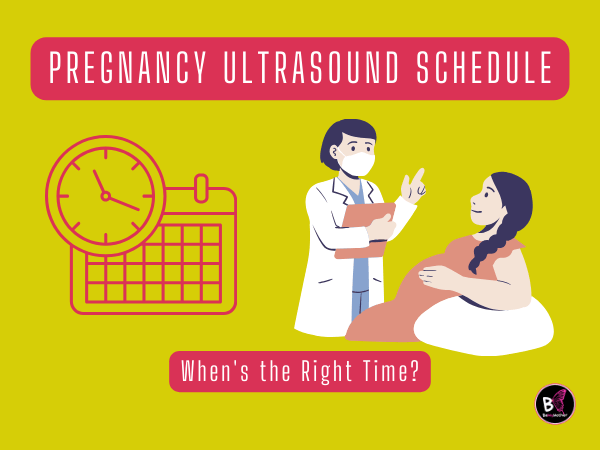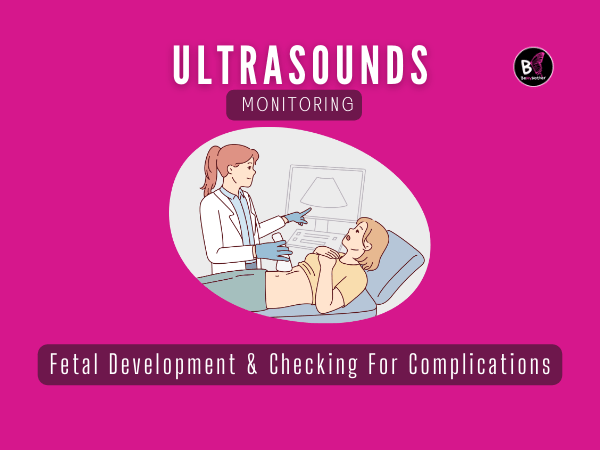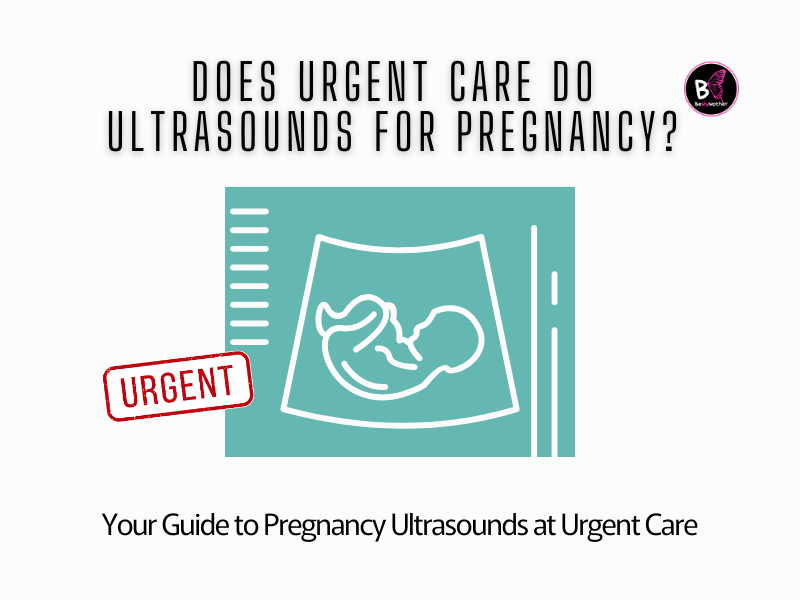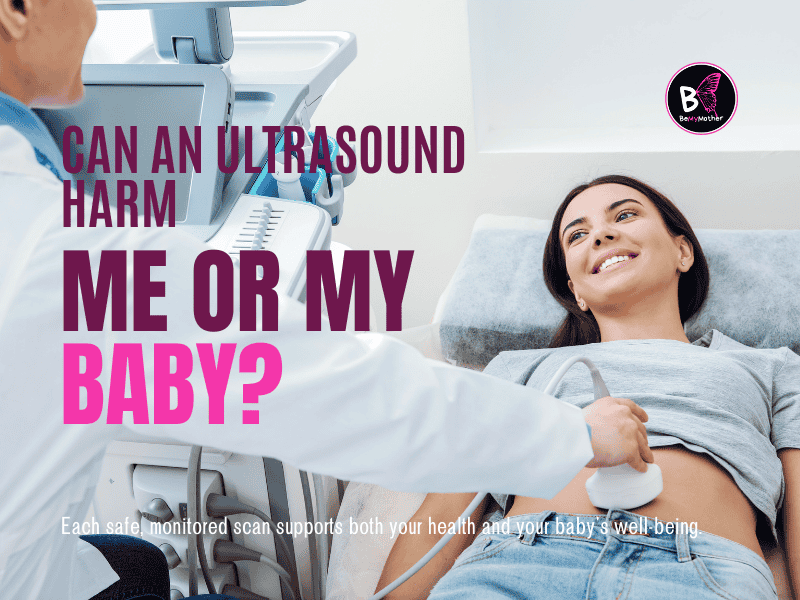Navigating pregnancy often comes with questions about where to go for medical care, especially in emergencies. One common query is, “Does urgent care do ultrasounds for pregnancy?” This article provides an in-depth look at urgent care capabilities when ultrasounds are needed, and alternatives to ensure you receive the best care for you and your baby.
1. Does Urgent Care Do Ultrasounds for Pregnancy?
Urgent care centers are designed for non-life-threatening conditions and can handle some pregnancy-related concerns. While some urgent care facilities can perform basic ultrasounds, their capabilities often pale compared to specialized OB-GYN clinics.
In cases of vaginal bleeding, severe abdominal pain, or suspected complications, urgent care may recommend or order an ultrasound at a hospital or outpatient radiology center. Their focus is on initial assessment and referrals, ensuring you get timely care from the appropriate specialists.
💡 Related Article: Need clarity on whether urgent care is the right place for pregnancy confirmation? Explore the details in Does Urgent Care Do Pregnancy Tests? Everything You Need to Know in 8 Clear Points. Get answers to make informed decisions.
2. When Should I Get an Ultrasound for Pregnancy?

Pregnancy ultrasounds are typically performed at specific stages:
- First Trimester (10-13 weeks): Confirms pregnancy, establishes gestational age, and checks for multiple fetuses.
- Second Trimester (18-22 weeks): Anatomy scan to evaluate fetal development and detect abnormalities.
- Third Trimester (32-36 weeks): Monitors growth, position, and amniotic fluid levels.
These scheduled ultrasounds play a critical role in monitoring your baby’s health, while additional scans may be required for complications.
🔍 Research Insight: The StatPearls article on Pregnancy Ultrasound Evaluation states that a routine ultrasound should be performed at 10 to 13 weeks gestational age to establish accurate gestational age, determine viability, and determine the number of fetuses. In the presence of concerning symptoms such as vaginal bleeding or abdominal pain, an emergent pelvic ultrasound must be performed to rule out complications like ectopic pregnancy.
Source: NCBI
💡 Related Article: Curious about how many ultrasounds you’ll need during your pregnancy journey? Find reassurance and expert advice in How Many Sonograms During Pregnancy? 9 Reassuring Facts Every Mother Should Know. Stay informed for a smoother experience.
3. Types of Ultrasounds Offered for Pregnancy
There are several types of ultrasounds used during pregnancy:
- Transabdominal: Standard scan performed over the abdomen.
- Transvaginal: Offers a clearer view in early pregnancy by inserting a probe into the vagina.
- 3D/4D Ultrasounds: Provide detailed imagery of the fetus, primarily for non-medical purposes.
Urgent care centers often offer only basic transabdominal scans. For specialized scans like transvaginal or 3D/4D, a referral to a hospital or OB-GYN clinic is likely.
🔍 Research Insight: The StatPearls article on Obstetric Ultrasound indicates that emergency physicians often perform first-trimester ultrasounds to identify an intrauterine pregnancy, especially in patients presenting with abdominal pain or vaginal bleeding. However, the availability of specific types of ultrasounds, such as transvaginal or 3D/4D, may vary between urgent care centers and specialized clinics.
Source: NCBI
4. Why Would a Doctor Order an Ultrasound During Pregnancy?
Doctors order ultrasounds for various reasons, including:
- Confirming pregnancy and determining gestational age.
- Monitoring fetal development and growth.
- Investigating complications like ectopic pregnancy or placental issues.
- Assessing amniotic fluid levels or identifying birth defects.
These scans are essential for clearly showing your baby’s health and addressing any potential concerns early.
🔍 Research Insight: The StatPearls article on Pregnancy Ultrasound Evaluation explains that ultrasounds are essential for monitoring the health and development of a fetus during pregnancy. They can confirm pregnancy, check fetal development, and investigate complications such as ectopic pregnancies or abnormal bleeding.
Source: NCBI
5. Why Would I Need an Emergency Ultrasound?

Emergency ultrasounds may be required for urgent concerns such as:
- Heavy vaginal bleeding or clotting.
- Severe abdominal or pelvic pain.
- Symptoms of miscarriage or ectopic pregnancy.
In such situations, urgent care or ER facilities can quickly perform an ultrasound to evaluate the cause and provide necessary interventions.
🔍 Research Insight: The Annals of Emergency Medicine outlines that emergency ultrasound in pelvic disorders focuses on detecting intrauterine pregnancy, ectopic pregnancy, and other complications. Emergency ultrasounds are crucial in scenarios involving vaginal bleeding, abdominal or pelvic pain, or suspected miscarriage.
Source: Annals of Emergency Medicine
6. Can Urgent Care Diagnose a Miscarriage?
How to predict if you will have an early miscarriage (with ultrasound)
Urgent care centers can perform initial evaluations for miscarriage through ultrasounds and blood tests, but they may refer you to an OB-GYN or hospital for comprehensive care. Ultrasounds can help detect pregnancy loss, while HCG levels provide additional confirmation.
🔍 Research Insight: According to the StatPearls article on Pregnancy Ultrasound Evaluation, in the presence of concerning symptoms such as vaginal bleeding or abdominal pain in a pregnant woman, an emergent pelvic ultrasound must be performed to assess the situation. While urgent care centers may initiate this evaluation, they often refer patients to specialized facilities for comprehensive assessment and management.
Source: NCBI
7. What Pregnancy Pains Shouldn’t You Ignore?
Some pregnancy pains require immediate attention, including:
- Severe abdominal or pelvic pain.
- Persistent or heavy vaginal bleeding.
- Sharp, stabbing pains on one side of the abdomen.
For mild or moderate pain, urgent care is suitable. However, for severe symptoms, head to the ER for specialized care.
| Symptom | Action |
| Mild cramping | Contact your OB-GYN or visit urgent care. |
| Heavy bleeding | Seek immediate ER assistance. |
| Severe abdominal pain | Go to the ER for evaluation. |
💡 Related Article: Wondering if unusual symptoms could signal early pregnancy? Discover the surprising connection in Is Vaginal Dryness A Sign of Pregnancy? 7 Essential Insights You Need to Know for a Healthier Experience. Gain essential insights into this lesser-discussed topic.
8. How to Know Your Baby Is Healthy Without an Ultrasound
Although ultrasounds are the most definitive method, other signs can indicate your baby’s health:
- Regular fetal movement after 18-22 weeks.
- A standard fetal heart rate is monitored by your doctor.
- Consistent weight gain and typical pregnancy symptoms.
These signs provide reassurance but should not replace scheduled medical check-ups.
9. When Can Ultrasounds Detect a Baby’s Gender?
A baby’s gender is typically determined during the anatomy scan at 18-20 weeks of pregnancy. While specialized clinics often offer gender determination, urgent care centers are less likely to provide this service.
10. Risks and Precautions of Ultrasounds During Pregnancy
Ultrasounds are widely considered safe when performed by trained professionals. However, myths persist about potential risks. Here’s the truth:
- Myth: Ultrasounds harm the baby.
Fact: No evidence supports this claim when used as directed. - Precaution: Limit non-essential ultrasounds like 3D/4D scans to avoid unnecessary exposure.
FAQ Section: Addressing Reader Concerns
- Does urgent care do ultrasounds for pregnancy emergencies?
Some urgent care centers can perform basic ultrasounds, but they may refer you to a hospital or OB-GYN for detailed scans. - Can urgent care confirm pregnancy?
Yes, most urgent care centers can confirm pregnancy through urine or blood tests, but they might not perform ultrasounds to verify fetal development. - When should I go to urgent care when pregnant?
For minor issues, such as mild pain or non-severe bleeding, visit urgent care. For severe symptoms, go to the ER. - Can urgent care detect a miscarriage through ultrasound?
Some urgent care centers can detect signs of miscarriage via ultrasound, but they may recommend follow-up care at a hospital or specialist. - What should I eat before an ultrasound during pregnancy?
Stay hydrated, as a full bladder can improve visibility for transabdominal ultrasounds. Avoid heavy meals that may cause bloating.
Conclusion
So, does urgent care do ultrasounds for pregnancy? While some urgent care centers can perform basic scans, their capabilities are limited compared to specialized OB-GYN clinics. Understanding your options for routine monitoring or emergencies ensures you and your baby receive the best care. Always prioritize your health and consult with medical professionals for guidance, whether it’s a scheduled ultrasound or an urgent evaluation.
💡 Related Article: Exploring fertility tracking options and early pregnancy detection? Learn how technology can assist you in Can Inito Detect Pregnancy? 8 Essential Facts About Fertility Tracking You Shouldn’t Miss. Take charge of your pregnancy journey with confidence.



